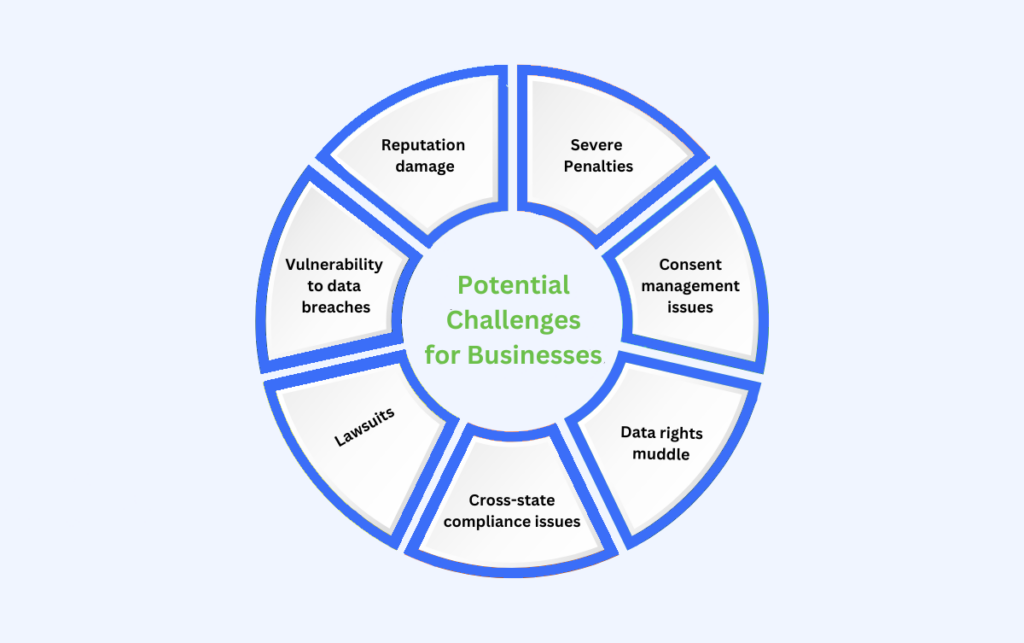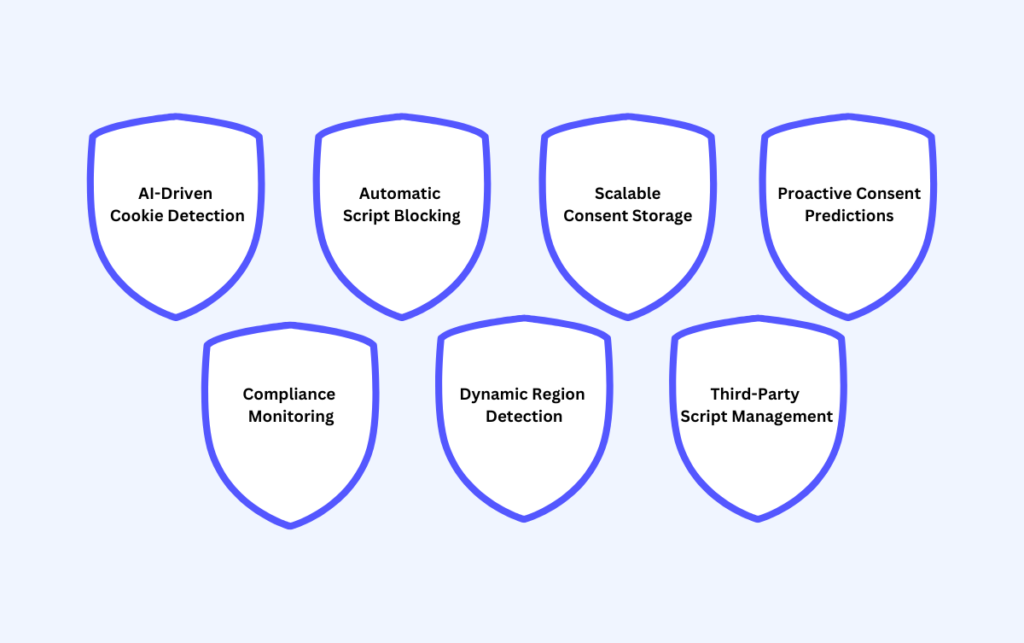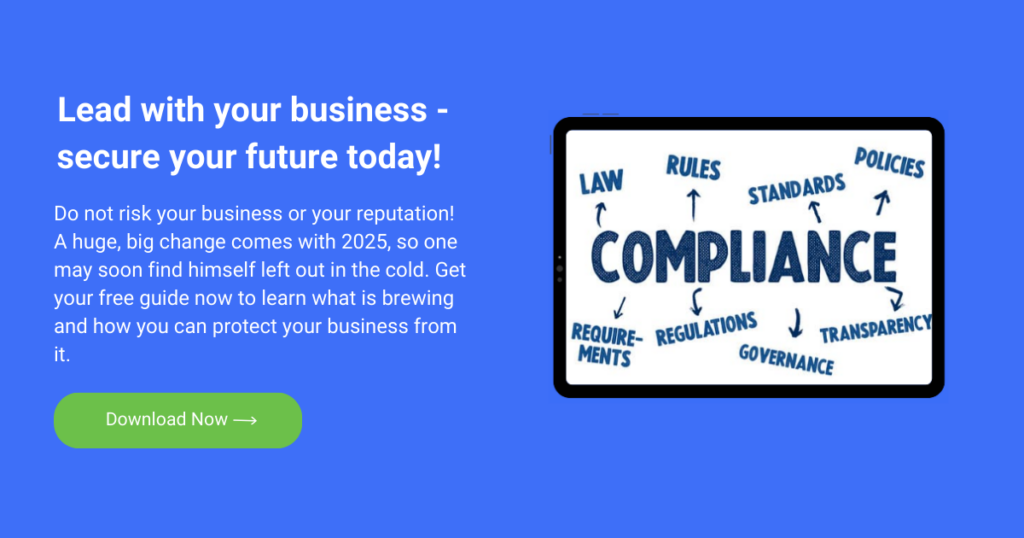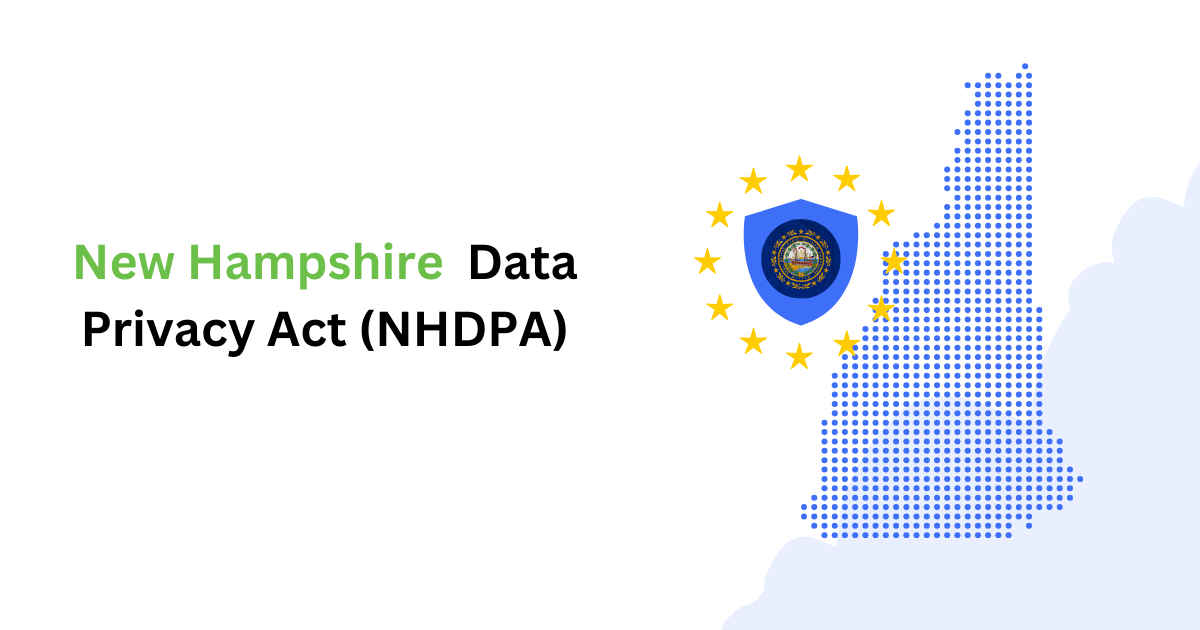On March 6, 2024, New Hampshire Governor Chris Sununu signed Senate Bill 255, thereby making New Hampshire the 15th state in the U.S. to adopt comprehensive data privacy regulation.
The New Hampshire Privacy Law or NHPA effective from January 1, 2025, is another development in the trend towards further state privacy legislation.
There are provisions for any business that may be controlled by New Hampshire Data Privacy Law. It covers those businesses processing data of over 35,000 people, or get 25 per cent or more in revenue from data of more than 10,000 people.
This blog will break down the key features of The New Hampshire Data Privacy Act. It will also help you connect the dots on the importance of this law.
Unique Features of the New Hampshire Privacy Law (NHPA)
| Threshold and Fines | The NHPA covers businesses handling 35,000+ consumers’ data or 10,000+ with 25%+ revenue from data sales, with fines up to $10,000 per violation. |
| Cure Period | 60 days until one year after the law is enacted (1/1/2026). |
| Data Protection Impact Assessments | The NHPA requires assessments for processing activities with a “heightened risk of harm,” including targeted ads, data sales, profiling, and sensitive data processing. |
| Recognise Universal Opt-Out Mechanisms | Yes |
| Consumer Rights | Right to Know/Confirm Right to Access Right to Delete Right to Opt-Out of Certain Processing (Targeted Advertising) Right to Portability/Transfer Right to Opt-Out of Sales Right to Opt-Out of or Limit Sensitive Data Processing |
Why New Hampshire Act was needed?
Introduced to respond to rising concerns about data privacy, the New Hampshire Act text gives consumers the rights of access, correction, deletion, and opt-out. Businesses must handle data responsibly from this point on.
Potential Challenges for Businesses Under the NHPA
Compliance with the New Hampshire Privacy Laws requires the timely alteration of business operations in light of requirements newly attached to it. This includes elevating data security and consumer requests management, as well as performing obligations that would avoid any penalties that may greatly affect operations.

Severe Penalties: Because of stringent regulatory standards, even little errors might result in significant fines.
Consent management issues: Affects overall invoices and consumer credibility.
Vulnerability to data breaches: Inadequate privacy protection exposes your company to expensive data breaches.
Lawsuits: Your customers will sue you if you have violated their privacy by taking their data or resources.
Cross-state compliance issues: Compliance becomes a real burden with different compliance requirements in different states.
Data rights muddle: Without adequate knowledge regarding the rights recently attained by consumers, improper handling of sensitive data could occur.
Reputation damage: A breach of privacy can truly cost you customers for good and damage your reputation permanently.
How This Law Can Benefit Your Business?
Here are some ways businesses can benefit specifically from the New Hampshire Privacy Bill:
- State-Specific Regulation: NHPA’s unmistakable framework enables businesses to align their practices with local consumer expectations in New Hampshire, which enhances intra-state relations.
- Scalable Privacy Solutions: Implementing NHPA-compliant measures enables businesses to build privacy protocols that can scale across other states with similar emerging laws, ensuring seamless adaptability.
- Data Transparency: The law encourages businesses to provide more transparency about their data practices, which translates into better customer insight and consent, thus improving marketing and personalisation initiatives.
Accountability Framework: Although NHPA requires businesses of all sizes to comply with standard operating protocols, it creates an equal foundation for smaller businesses to compete fairly with the incumbents.
Tips to Get 100% Out of Data Privacy Compliance

Achieve the full potential of data privacy compliance by using the right tools and strategies. Seers.AI is here to help facilitate compliance with evolving regulations using tailored automation solutions, and risk mitigation while maintaining operational efficiency. Discover our all-friendly suite of tools geared towards compliance with every law and complete business protection.




